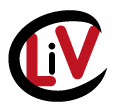7-8 November 2019
International colloquium
Université Paris 8-St-Denis
Université Paris Nanterre
Musée d’art et d’histoire Paul Éluard, Saint-Denis
Maison des Sciences de l’Homme Paris Nord
This international conference is part of the MuséaLitté research programme on the interaction between museums and literature.
Museums are both highly symbolic spaces and sites for the construction and dissemination of culture. Writers visit, appropriate, and mediatise all kinds of museums (Public or private, natural history museums, ethnographic collections, science and technology museums, art galleries, cabinets of curiosities, world expositions) as well as places where literature is preserved and classified (libraries, literary archives, and manuscript centres).
Museums and museum-like spaces, be they real, imaginary or revisited, are discussed, represented, or narrativised in all literary genres. Participants are invited to study their representation in fiction, poetry, drama, biography, essay, exhibition notebooks and travel journals, or iconotextual works such as bandes dessinées, comics, graphic narratives, children’s picture story books, hypermedia works.
In what ways are museums, themselves sites of preservation, ordering and patrimonialisation of the material world as well as spaces of fabrication and dissemination of narratives, fictionalised or integrated into argumentative or theoretical discourse? Are museums described as spaces of mediation of living and vital art or of deadly accumulation? Do literary discourses on museums and like spaces express dislike or admiration? Between reality and fiction, material culture and representation, museums are paradoxical loci. Paul Valéry sees them as oxymorons, “a hubbub of congealed creatures” (“tumulte de créatures congelées” (“Le problème des musées”, 1923), and Michel Foucault categorises them as “heterotopias” (“Other Spaces”, 1967). As sanctuaries or common graves, spaces of knowledge and aesthetic experience between isolation and interaction, order and disorder, what poetics do they inform?
We invite proposals for 20 minute contributions in English or French focusing on European literature from any period. We welcome submissions with theoretical, comparative, or diachronical perspectives, as well as case studies.
The conference will be held in English and French.
Please send proposals (500 words max.) and short bio-bibliographies to Charlotte Estrade (Université Paris Nanterre) and Caroline Marie (Université Paris 8): musealitte@gmail.com no later than July 10th 2019.
Applicants will be notified by Monday September 2nd 2019.
CFP_MUSEUMS_IN_LITERATURE_International
